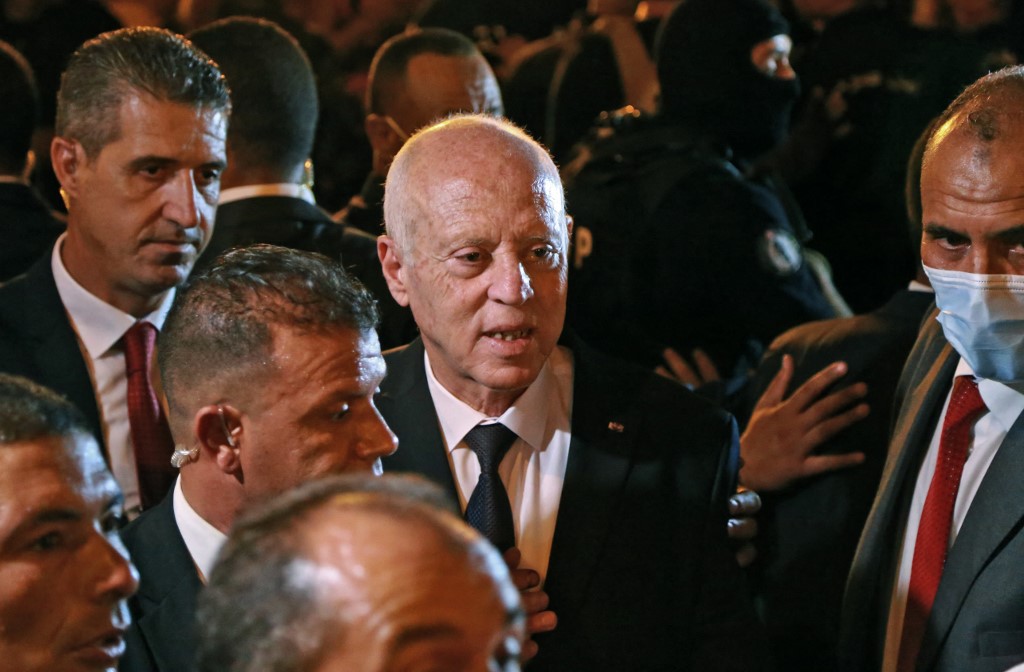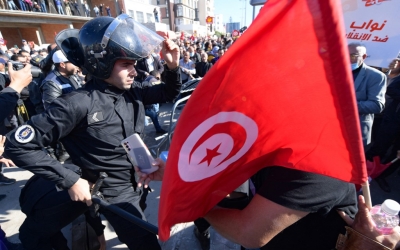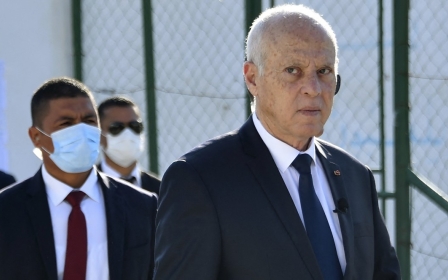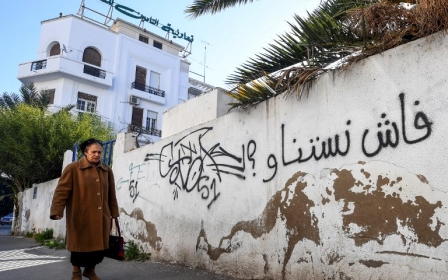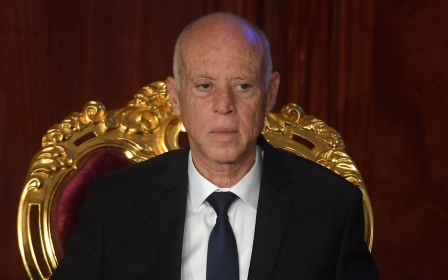In Kais Saied's Tunisia, everything changes so everything can stay the same
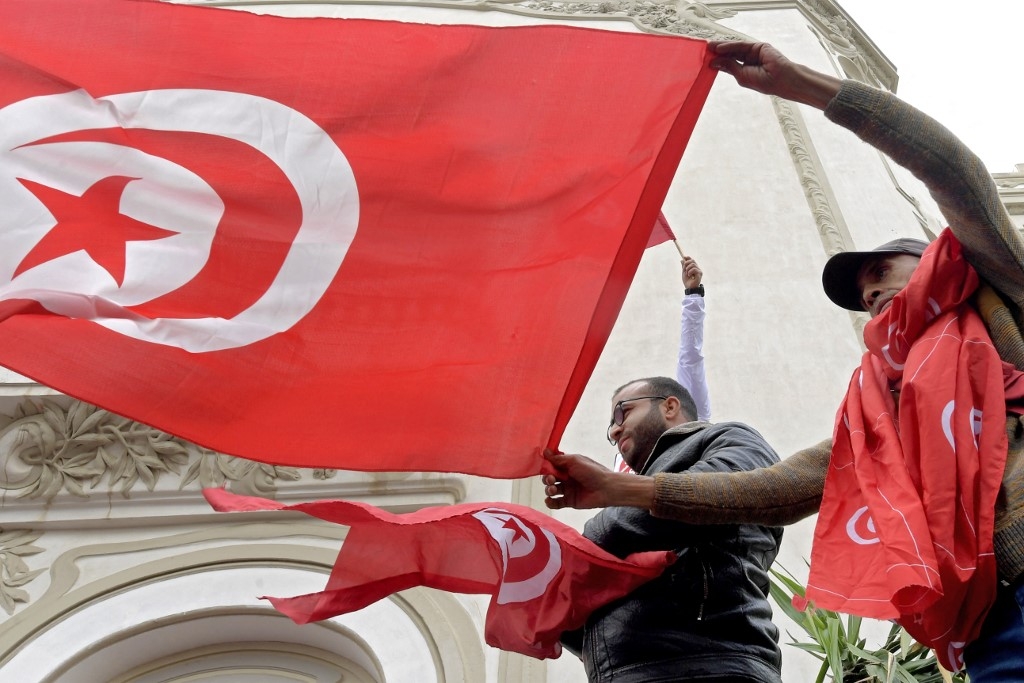
It’s summer in Tunisia. Across the country, people are feeling the continued effects of a protracted economic crisis that has characterised the better part of a decade, as well as high inflation aggravated by international shocks and the country’s dependence on food imports.
The government is setting out its economic programme to the International Monetary Fund (IMF), hoping to have proposed enough to secure another loan, while also keeping key domestic players - and in particular the Tunisian General Labour Union - on board.
The substantial threats to many Tunisian livelihoods leave little room for error, while promised windfalls from confiscated assets of anti-corruption campaigns have remained elusive.
As with much of Saied's ideology, the issue lies in a failure to recognise that governance requires the management of complex coalitions and sets of interests
This describes Tunisia today. But little is new here: I could just as well be describing the various other governments of the past decade.
Despite the complete political overhaul of the past year, including a new constitution and the collapse of Tunisia’s democratic experiment, the deadlock in its political economy remains remarkably unchanged.
New MEE newsletter: Jerusalem Dispatch
Sign up to get the latest insights and analysis on Israel-Palestine, alongside Turkey Unpacked and other MEE newsletters
The country resembles the dictum set out in Giuseppe Tomasi di Lampedusa’s The Leopard: everything must change so that everything can stay the same.
Since Tunisia’s constitutional referendum last month, there has been a sense that, having focused on his political agenda first, President Kais Saied now has no choice but to turn to the economy. Negotiations with the IMF and the announcement of new economic initiatives seem to support that impression.
But this seeming separation between the political and the economic overlooks how closely the two are connected. Many of the country’s economic ailments - the abundance of veto players, the influence of clientelist networks, the lack of a clear programme - have resulted from its previous political settlements.
Rhetoric versus reality
Given the role that economic hardships faced by ordinary Tunisians has played in Saied’s campaign, one might have assumed that his political project would have laid the groundwork for an economic vision, strengthening key institutions and sidelining potential veto players.
And given the role that national self-determination has played in his rhetoric, one might also have assumed that he would put together a coalition that was not primarily structured around negotiations with the IMF. Perhaps the most stunning fact about Saied’s authoritarian ascendancy so far has been his complete failure to do that.
Almost three years after he managed a landslide electoral victory as a seeming outsider, his political project has left him with the same limited options and plentiful constraints that plagued his predecessors. Even his highly publicised vow to combat corruption recalls former prime minister Youssef Chahed’s similar foray in 2017.
The opportunity was there. The past year has shown that Saied had the room to substantially alter the country’s political landscape. He took this opportunity to force the exclusion of Ennahda, the largest political party over the last decade, and to establish an authoritarian political structure with himself at the centre. As he now, at last, turns to the economy, he will find that both changes have done practically nothing to provide him with any new breathing space.
While this is not the space to re-litigate Ennahda’s economic programme and performance during its time in government, the party has hardly played the role of a determined veto player on the road to economic reform.
In the face of a clear and broad coalition behind a presidential economic vision, whatever it might have been, it is hard to imagine that Ennahda would not have gone along with it. Saied’s focus on their marginalisation, for all its damage to the country’s democratic structures, has also implied a lack of serious interest in economic reform.
Structural challenges
Similarly, it is unlikely that Saied’s hyper-presidentialism provides him with much space to enact a new economic vision. Even in the absence of strong parties as potential veto players, enacting deep economic reforms would still require administrative and political support coalitions that are invested in a reform process - a critical feature of more economically successful authoritarian governments.
It is entirely unclear how he will build these while side-stepping the embedded interests and power structures within the country’s economic landscape - or whether he is aware that he needs to. Many of the structural challenges that Tunisia’s economy faces today, from its segmented economy to regional inequality, are also rooted in the history of previous authoritarian governments, as financial policies were explicitly used to shore up domestic and international support coalitions.
This is not to say that there are not opportunities ahead. Recent discussions on the importance of reforming the tax system, for example, point to a policy area that is in dire need of addressing - and one that might fit well with Saied’s persona. But it is also a good example of a reform that requires coalition-building, both on the technical side and on the political side, to drive real progress.
As with much of Saied’s ideology, the issue lies in a failure to recognise that governance requires the management of complex coalitions and sets of interests, and the creation of institutions that can navigate these. Much of the critique of his economic approach has been around a lack of competence or a lack of vision, and such criticisms are not wrong.
But what needs to be added is his failure to build a political coalition around economic change, and to create political room to break from the patterns of previous years. His failure means that even if vision were to strike now, it might be too late.
The views expressed in this article belong to the author and do not necessarily reflect the editorial policy of Middle East Eye.
This article is available in French on Middle East Eye French edition.
Middle East Eye delivers independent and unrivalled coverage and analysis of the Middle East, North Africa and beyond. To learn more about republishing this content and the associated fees, please fill out this form. More about MEE can be found here.



